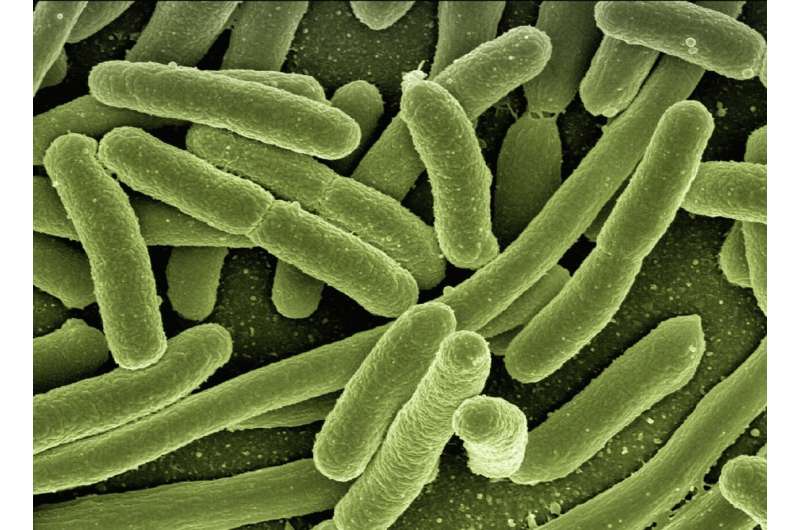A probiotic treatment for obesity?

Alterations in the gut microbiota—the microorganisms residing in the gastrointestinal tract—have been implicated in the development of obesity and other chronic diseases.
Sean Davies, Ph.D., and colleagues previously reported a strategy for engineering gut microbiota to produce beneficial compounds that combat obesity. They showed that administration of bacteria engineered to produce NAPEs, a family of bioactive lipids with known anti-obesity properties, inhibited weight gain and other adverse effects of a high-fat diet in mice. In their earlier studies, they pre-treated the mice with antibiotics and administered the engineered bacteria for eight weeks.
Now, they have found that less onerous protocols—no antibiotics and only two weeks of bacteria—still impart resistance to diet-induced obesity and sustained NAPE biosynthesis. In addition, they had success using a human NAPE-producing enzyme.
The findings, reported in Applied Microbiology and Biotechnology, support further studies of engineered bacteria that produce beneficial compounds as a treatment strategy for obesity and other chronic diseases.
More information: Noura S. Dosoky et al. Two-week administration of engineered Escherichia coli establishes persistent resistance to diet-induced obesity even without antibiotic pre-treatment, Applied Microbiology and Biotechnology (2019). DOI: 10.1007/s00253-019-09958-x
Journal information: Applied Microbiology and Biotechnology
Provided by Vanderbilt University
















